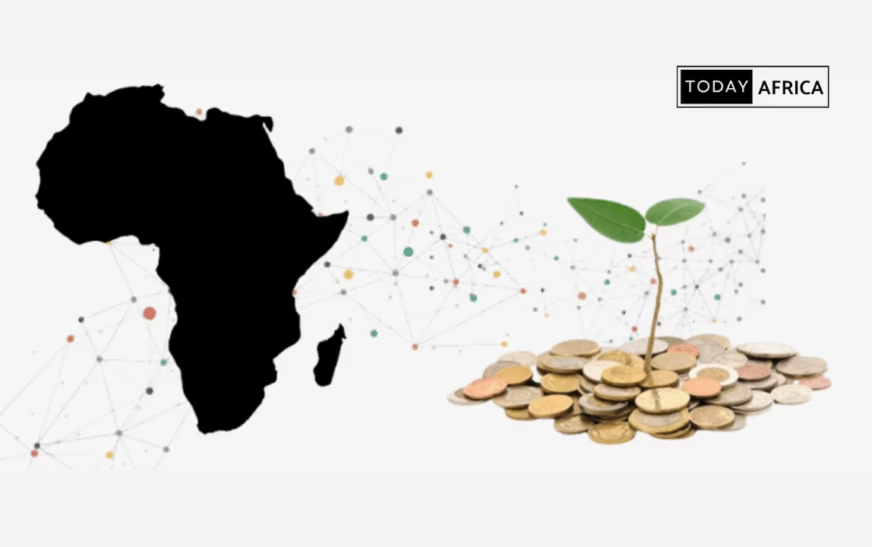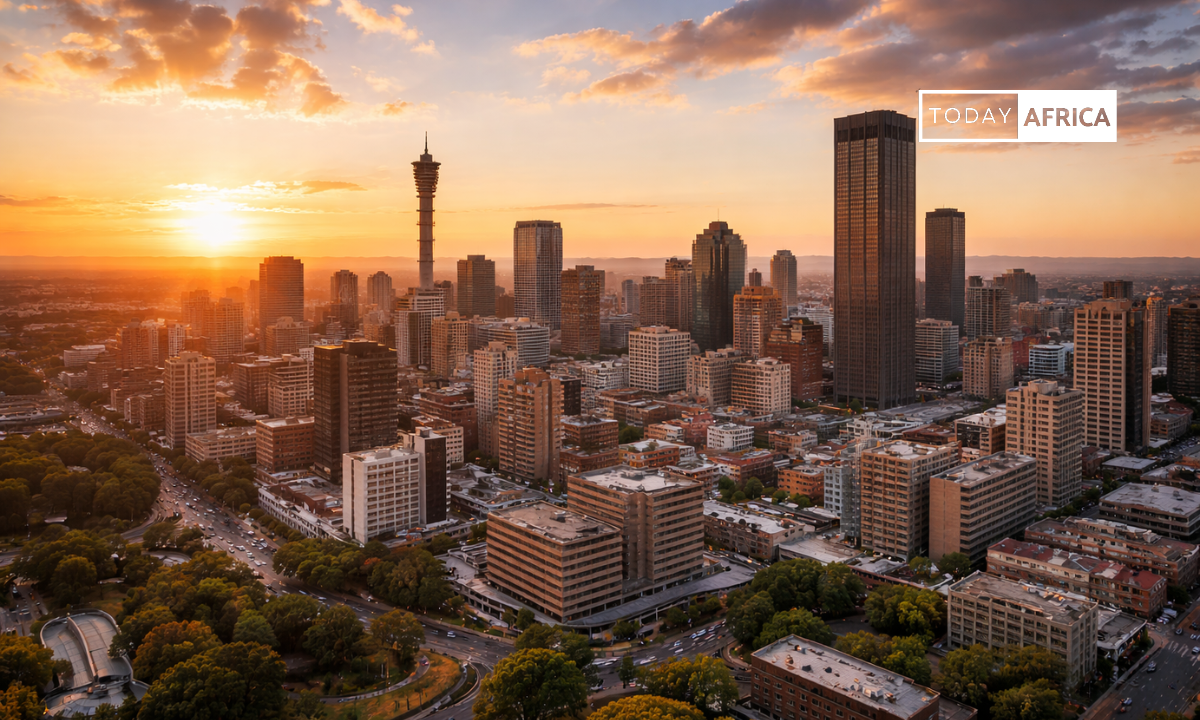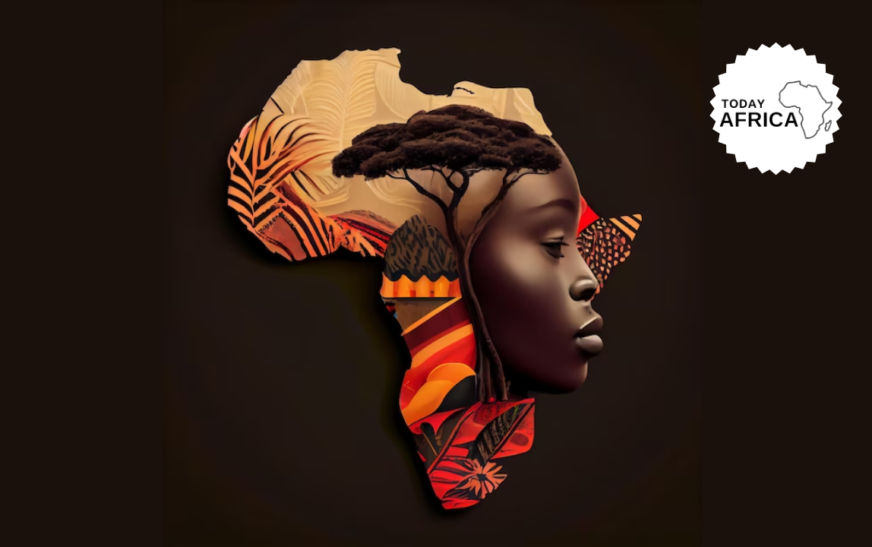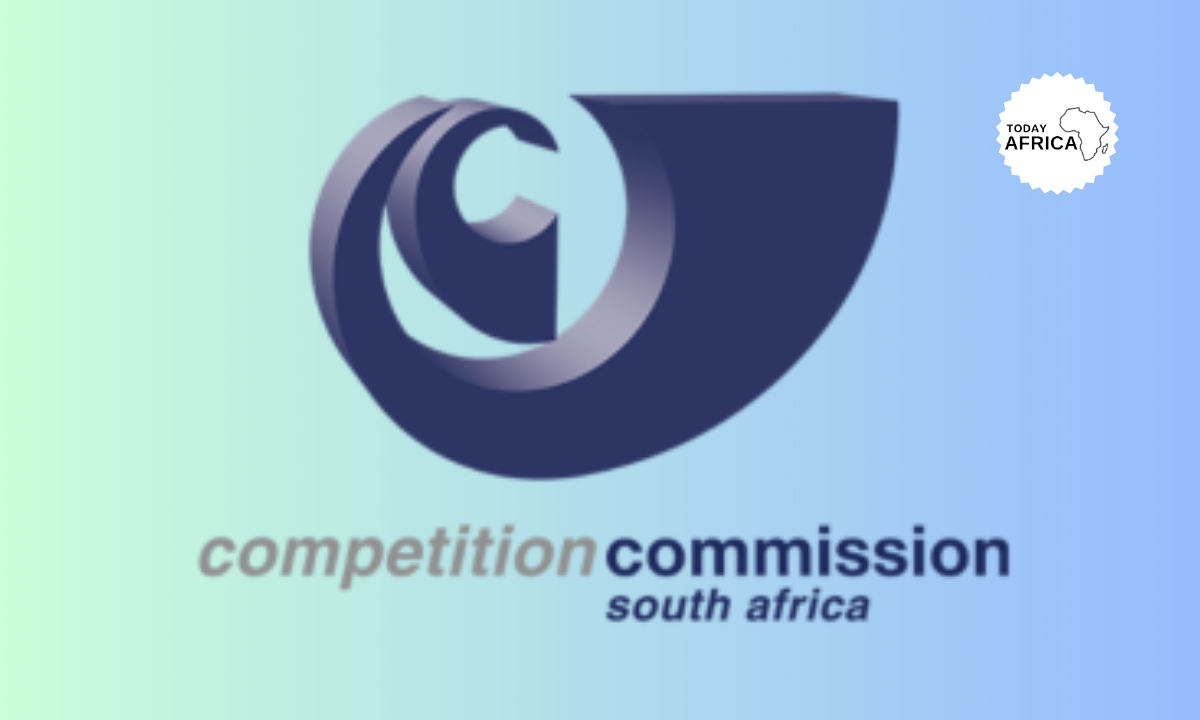In the first half of the year alone, startups on the continent raised over $1.35 billion, representing a 78% increase from the same period in 2024.
At the heart of this funding surge are Series A rounds—critical for startups ready to move beyond seed funding and scale their operations across countries and sectors.
This article examines 8 African startups that raised Series A funding in H1 2025, their respective activities, the amount they raised, and, most importantly, the reasons why investors were eager to back them.
Let’s explore the standout Series A stories of 2025.
TL;DR: 8 African Startups that Raised Series A in H1 2025
| Startup Name | Country / Region | Year Founded | Founders | Niche / Sector | Series A Amount / Date | Key Investors |
|---|---|---|---|---|---|---|
| OmniRetail | Nigeria | 2019 | Deepankar Rustagi | B2B e-commerce, FMCG distribution, embedded finance | $20M in April 2025 | Timon Capital, Goodwell Investments, Ventures Platform |
| hearX / LXE Hearing | South Africa / Global | ~2015 | Nic Klopper, University of Pretoria spin-out | Hearing diagnostics, OTC hearing aids, medtech | $100M+ in April 2025 | Patient Square Capital (USA), merger with Lexie Hearing |
| Spiro | Kenya / West Africa | 2019 | Kaushik Burman, African EV pioneers | Electric motorcycles with battery swap infrastructure | Series A-style, early 2025 | African Infrastructure Investment Managers (AIIM), others |
| Stitch | South Africa | 2019 | Kiaan Pillay, Priyen Pillay, Junaid Dadan | API-based fintech infrastructure for payments and banking | $21M (2022 + 2025 extension) | Ribbit Capital, CRE Ventures, PayPal Ventures |
| Raenest | Nigeria | 2022 | Victor Alade, Sodruldeen Mustapha, Richard Oyome | Digital banking for freelancers & SMEs | $11M in Series A, 2025 | QED Investors, Ventures Platform, Raba, Ingressive Capital |
| Affinity Africa | Ghana | Early 2020s | Ghanaian founders | Digital banking for unbanked, no-ID users | $8M in early 2025 | Grazia Equity, Backed VC, Giant Ventures |
| Enko Education | Pan-Africa | 2014 | Cyrille Nkontchou, Eric Pignot | International schools for African middle class | $24M in equity in Jan 2025 | Adiwale Partners, Investisseurs & Partenaires (I&P), Oikocredit |
| PowerGen Renewable Energy | Kenya / Pan-Africa | ~2011 | Kenya-based energy entrepreneurs | Solar-hybrid mini-grids, commercial & industrial renewable energy | $50M+ in 2025; $15M equity round in Jan | InfraCo Africa, IFU, ElectriFi, AfDB-SEFA |
See Also: 8 Ways African Women Entrepreneurs Are Accessing Global Funding
8 African Startups That Raised Series A in H1 2025
1. OmniRetail (Nigeria)
Founded in 2019 by Deepankar Rustagi, who previously launched VConnect, OmniRetail is a B2B e‑commerce company built for Africa’s informal FMCG retail market.
The platform connects over 145 manufacturers and more than 5,800 distributors with 150,000+ informal retailers in Nigeria, Ghana, and Ivory Coast.
Through its flagship app (Omnibiz), embedded finance arm (OmniPay), and a logistics network of 1,100 vehicles and 85 logistics partners, OmniRetail enables retailers to order inventory, access credit, and make digital payments.
In 2023, the company became EBITDA‑positive, and by 2024, net profitable.
In April 2025, they raised a $20 million Series A, co‑led by Norfund (its first direct African investment) and Timon Capital; other participants included Ventures Platform, Aruwa Capital, Goodwell, and Flour Mills of Nigeria.
The round brings their total funding to roughly $38 million (equity and debt).
OmniRetail used the capital to scale across West Africa, expand offerings into personal care, home care, and cold storage, upgrade credit underwriting, and pursue acquisitions, most notably Traction Apps in 2024, giving it full‑stack payment capabilities and retailer‑level sales data.
Their proven embedded finance model (OmniPay disbursing ₦19 billion/month with near‑zero defaults) positioned them as a rare profitable and scalable retail infrastructure play.
2. hearX Group (South Africa / Global)
Founded around 2015 from a spin‑out of the University of Pretoria, hearX developed mobile-based hearing screening and diagnostics tools and launched the Lexie Hearing direct-to-consumer brand.
In April 2025, hearX merged with U.S.-based Eargo to form LXE Hearing, accompanied by a $100 million investment led by Patient Square Capital—the largest healthtech deal in Africa.
Founders and leadership: hearX was co-founded and led by Nic Klopper, now CEO of LXE Hearing, with Eargo’s leadership joining in senior roles.
The combined company offers OTC hearing aids, mobile apps, and sound-based diagnostics, targeting the 44 million Americans with hearing loss and millions more worldwide.
The transaction aimed to democratize hearing care globally through technology, combining hearX’s mobile diagnostics with Eargo’s direct-to-consumer hearing aids.
Investors saw an opportunity to impact low-cost access to hearing health and address a massive unmet need in both Africa and global markets, especially following FDA approval for OTC hearing aids in the U.S..
3. Spiro (Kenya‑based EV mobility)
Spiro, formerly MAuto, was founded in 2019 in Nairobi, Kenya, backed initially by Gagan Gupta’s Equitane Group (formerly ATIF).
The company builds electric motorcycles and battery-swap infrastructure across six African countries: Kenya, Nigeria, Uganda, Rwanda, Togo, and Benin. Kaushik Burman is the CEO leading expansion.
As of 2025, Spiro has operated over 18,000 electric bikes, executed 11 million battery swaps, enabled 428 million CO₂‑free kilometers, and declared a bold ambition of 2 million e‑bikes by 2030.
Early this year (2025), they raised a Series A-like funding round (exact sum undisclosed) to open two EV assembly plants—one in Kenya and another in Ogun State, Nigeria—and to expand partnerships like the one with ZOOMe in Abuja.
Spiro targets motorcycle taxi drivers (boda-boda) with an EV + battery‑swap subscription model that cuts fuel costs, reduces emissions, and boosts driver incomes.
Their scalable infrastructure model, high traction, partnerships with banks and mobility platforms, plus regional footprint, made them a standout Series A opportunity in climate and mobility tech.
4. Stitch (South Africa)
Founded in 2019 by Kiaan Pillay, Priyen Pillay, and Junaid Dadan, Stitch is based in Cape Town and focused on embedded payments infrastructure across Africa.
Its Series A round came in February 2022 (approximately $21 million, led by The Spruce House Partnership) followed by a Series A extension in late 2023, taking total Series A to around $46 million.
January 2025, Stitch acquired ExiPay—adding in‑person payments—and relaunched the SME payment plugin WigWag as “Stitch Express” in early 2025.
April 2025, they closed a $55 million Series B led by QED Investors with participation from Norrsken22, Flourish Ventures, Glynn Capital, Ribbit Capital, PayPal Ventures, The Raba Partnership, and angel investor Trevor Noah—bringing total funding to $107 million.
The solid Series A foundation allowed Stitch to rapidly scale both online and in‑person payments, integrate acquisitions, serve major enterprise clients like Takealot, Vodacom, MTN, and build end‑to‑end infrastructure with fraud prevention and payout services
Read Also: Grant vs Loan: How to Decide for Your Small Business in Africa
5. Raenest (Nigeria)
Founded in 2022 by Victor Alade (CEO), Sodruldeen Mustapha (CTO), and Richard Oyome (COO), Raenest originally launched as an Employer of Record before pivoting into a fintech platform focused on freelancers and SMEs across Africa .
In February 2025 they raised $11 million in a Series A led by QED Investors, with participation from Norrsken22, Ventures Platform, P1 Ventures, and Seedstars—bringing total funding to $14.3 million.
Raenest already serves over 700,000 individuals, has processed more than $1 billion in payments, and serves over 300 businesses. Its Geegpay product enables freelancers to receive payments in USD, EUR and GBP via multicurrency wallets and virtual or physical global cards.
Raenest’s Series A enabled expansion beyond Nigeria and Kenya into the US and Egypt markets, added new product features like savings tools, and strengthened its offering to remote work platforms and SMEs looking for global banking solutions.

6. Affinity Africa (Ghana)
Founded in Ghana and led by local fintech entrepreneurs, Affinity Africa raised $8 million in early 2025 in what was both a Series A and seed-stage investment co-led by Grazia Equity and Backed VC.
The company offers digital banking services targeted at underserved and unbanked populations in Ghana—providing savings, wallets, and credit without requiring formal IDs.
Affinity Africa’s funding validated Ghana’s emerging fintech scene outside of Nigeria/Kenya/Egypt/South Africa and underscored the appeal of financial inclusion models that serve low-income and youth user segments through simple, mobile-first interfaces.
7. Enko Education (Pan-African edtech/schools)
Co-founded by Cyrille Nkontchou (Chairman), Eric Pignot (CEO), and partners in 2014 in Cameroon, Enko Education has grown to operate 16 international schools across 10 sub-Saharan African countries with over 7,000 students and 1,700 graduates admitted into over 500 prestigious global universities.
January 2025 they closed a $24 million equity investment from Africa Capitalworks and returning investor Adiwale Fund I, to fund their acquisition strategy and grow their student body to 20,000 by 2029.
This funding round positioned Enko as a leading pan-African education operator, enabling consolidation of regional school assets and scaling of international-standard K12 education to under-resourced markets.
8. PowerGen Renewable Energy (Kenya / Pan‑Africa)
Founded around 2011 in Nairobi, Kenya, by energy and infrastructure entrepreneurs (specific founders are not widely publicized), PowerGen is a pioneer in distributed renewable energy solutions across sub‑Saharan Africa.
The company specializes in solar hybrid mini‑grids and commercial & industrial renewable energy installations, often combined with battery energy storage systems.
With over a decade of operational experience, PowerGen now operates in at least 12 countries, including Kenya, Nigeria, Sierra Leone, Tanzania, and the Democratic Republic of the Congo.
Early this year, PowerGen secured over US $50 million in equity investment from development finance institutions and impact investment platforms, including:
- InfraCo Africa/PIDG
- The Danish Investment Fund for Developing Countries (IFU)
- EDFI’s ElectriFi initiative
- The African Development Bank’s Sustainable Energy Fund for Africa (SEFA), with an initial equity injection of about $15 million in January, February to support a transformative renewable energy platform.
This capital was intended to deploy a 120 MW pipeline of solar‑hybrid mini‑grids and C&I energy projects across Nigeria, Sierra Leone, and the DRC, expanding access for nearly 70,000 households and thousands of businesses.
PowerGen stands out for its infrastructure-scale clean energy model, combining investment from major DFIs with commercialization across underserved markets.
The platform supports the UN Sustainable Development Goals and demonstrates that renewable energy can be scaled through blended finance. It also marks Africa’s increasing attraction as a climate-tech growth frontier, where energy access, impact, and revenue generation align.
Emerging Trends from These Series A Rounds
There are several patterns that emerge from these 10 startups:
- Sector strength: Fintech continues to dominate Series A rounds, but healthtech, energy, and edtech are closing the gap as investors focus on long-term impact.
- Geographic concentration: Nigeria, Kenya, and South Africa (Africa’s “Big Three”) continue to capture most of the capital, about 84% of total startup funding in the first half of 2025.
- Climate and infrastructure: Startups offering clean energy, mobility, and infrastructure solutions are gaining investor attention, especially as global capital looks for ESG-aligned opportunities.
- Diaspora and remittances: Solutions that connect Africa with its global diaspora—like LemFi—are showing fast growth and cross-border monetization potential.
See Also: 16 Crowdfunding Platforms Africans Can Use For Business, Education, & Emergencies
Conclusion
These 8 African startups that raised Series A in H1 2025 represent the face of African innovation—one that is practical, scalable, and deeply rooted in the local context.
These startups are solving real-world problems across health, education, finance, mobility, and energy.
If you’re an investor, this is the moment to pay close attention. If you’re a startup founder, study these examples for insights into traction, product-market fit, and storytelling that resonates with investors.
FAQ
What is a Series A round?
A Series A round is a startup’s first major round of institutional investment, usually ranging between $5 million and $20 million in Africa, aimed at scaling operations and acquiring new customers.
Which sectors are likely to dominate Series A in the coming years?
Fintech will remain dominant, but expect strong growth in healthtech, renewable energy, logistics, and digital education—especially where impact meets scalability.
How can a startup prepare to raise a Series A?
To raise Series A, founders must demonstrate solid traction (users, revenue), a scalable model, clear customer value, strong unit economics, and a credible team.
Leave a comment and follow us on social media for more tips:
- Facebook: Today Africa
- Instagram: Today Africa
- Twitter: Today Africa
- LinkedIn: Today Africa
- YouTube: Today Africa Studio
















